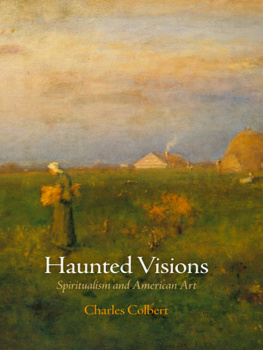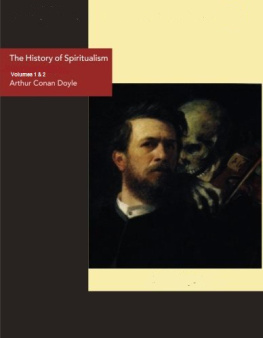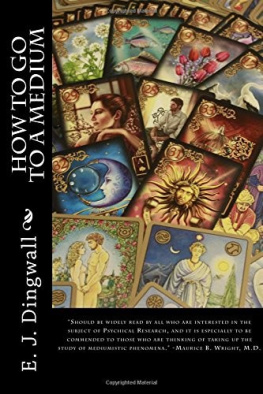utpress.utexas.edu/index.php/rp-form
Library of Congress Catalog Card No. 6410317
Library ebook ISBN: 978-1-4773-0598-0
Individual ebook ISBN: 978-1-4773-0599-7
DOI: 10.7560/734203
Copyright 1964 Earl W. Fornell
All rights reserved
TO MARTHA
The literature on spiritualism includes hundreds of books, journals, and periodicals, as well as annual reports of the several societies which once supported spiritualism or which, on the contrary, saw such a belief as an evil anti-Christ and hence devoted themselves to its annihilation.
Because of the bizarre character of spirit rapping and the tent-show characteristics surrounding many of the mediums the public press in general took a keen interest in the cults. Also, because some of the greatest editors in the nation on occasion appeared to entertain the possibility that beings from another world might actually be near at hand knocking upon mortal doors, editorials and news stories in the press attracted public interest and increased the fame of spiritualism.
For this reason old newspaper and periodical files constitute a major source of documentation illustrating the social impact of the phenomenon of spiritualism. It is significant that such general periodicals as The Atlantic Monthly, The Dial, the Scientific American, the Nation, and others often printed serious articles speculating as to the validity of the claims made by the spiritualists.
Individual mediumssome sincere believers, others irresponsible adventurerswrote books detailing their strange experiences with immortal beings. Many of these volumes were accepted by believers as divinely inspired and were put forward as equal to the books of the Christian apostles. The catalog of any large research library will contain cards for many dozens of these volumes, as well as for dozens of other books written to denounce the claims of the spiritualists.
Since these remarkable claims had attracted the interest of an estimated twenty million Americans, the politicians, of necessity, had to include the spiritualists in their calculations. While the orthodox churches on the whole wanted the law to curtail the spiritualists, the number of Americans who took an interest in the spirits numbered as many as those attached to any single one of the older religious denominations. In these circumstances the legislators had to treat with proper respect memorials and petitions sent to them by the spiritualists. There was after all a spiritualist vote and members of these organizations were ardent memorialists and petition signers. Thus, the researcher can frequently find in the Congressional Record and in the records of the state legislatures interesting references to spiritualism.
The reports, diaries, memoirs, and private papers, both in printed and manuscript form, of persons and groups living during the last half of the nineteenth century often reveal colorful bits about the cult. To mention but a few, the diary of George Templeton Strong, Horace Greeleys memoirs and papers, the correspondence of Margaret Fox and Elisha Kent Kane, Ralph Waldo Emersons notes, Leah Underhills notes, the letters of Harriet Beecher Stowe, the report of the famed Seybert Commission of the University of Pennsylvania, and the reports of the harassed medical society of Buffalo will illustrate the keen interest which the rapping spirits aroused on all levels of American society. Later, when the cult was discredited, it is likely that many persons purged their diaries and letter files of favorable comments about spiritualism.
As mediums were often brought before the courts of law upon one charge or another, the records of the law courts, mostly in the lower and unreported levels, contain many interesting details about the tribulations of the unorthodox spiritualists.
In addition, the schools and colleges were the arenas for many of the battles between orthodoxy and spiritualism. Thus, in the records and newspaper reports concerning institutions such as Harvard and the University of Pennsylvania, and from such great school systems as that of New York City, as well as the unpretentious meetings of country school boards in the middle west, one can find an occasional account of an investigation into the phenomenon of spiritualism. The issue usually turned upon the validity of the claims of spiritualists and upon whether or not a believing spiritualist was fit to be a teacher of the young.
The work I have attempted in this volume is intended only as a brief account of a few episodes arising out of the interesting flowering of a strange cult during the last half of the nineteenth century. An attempt to evaluate the influence of this cult upon the social and political history of the United States or its effect upon the fundamental religious faith of millions of Americans would be a research task of far larger proportions. And to attempt to evaluate the extrasensory aspects of the implications arising from a scientific approach to the supernatural cults is a matter much beyond the social and political historian. I have merely chosen to illuminate what appear to be representative episodes, as illustrations of what must have been the larger story of spiritualism in America.
I wish to express my gratitude in particular to Dr. F. L. McDonald, president of Lamar State College of Technology and to Professor Lloyd Cherry, director of the Lamar Research Center, for their interest in and support of my research.
I extend my sincere thanks to my friends at Lamar State College of Technology, who have assisted me in many ways: Dr. Richard B. Setzer, vice-president and dean, Dr. Edwin S. Hayes, dean of arts and sciences, Dr. Irving Dawson, chairman of the Department of Government, Dr. Preston Williams, chairman of the Department of History, Dr. Charles Hagelman, chairman of the Department of English, and Dr. Claude Boren, chairman of the Department of Sociology, and to Miss Julia Plummer, librarian.
All researchers are in particular debt to librarians for their expert advice and assistance in matters of bibliography and editing of footnotes. In this instance, I give my most grateful thanks to Miss Maxine Johnston, reference librarian at Lamar State College of Technology, and to Dr. James W. Phillips, formerly of Rice University, now cataloguer and bibliographer, De Golyer Rare Book Room, Fondren Library, Southern Methodist University, Dallas, Texas.
An academic researcher also is always in debt to friends and colleagues who helped and encouraged him in many ways. For their interest in my work during the early stages of the research, I am therefore especially grateful to Professor Edward Hake Phillips, of Austin College at Sherman, Texas; the late Professor William B. Hesseltine, of the University of Wisconsin; Professors Hardin Craig, Jr., Floyd Seyward Lear, Chalmers Mac Hudspeth, and Katherine Fischer Drew, of Rice University; and Dr. Ronald Drew and Dr. Stanley Siegel, of the University of Houston.
I wish to express my appreciation to other friends for their interest in my work: Mr. John Tod Hamner, Mrs. Rosa Tod Hamner, Miss Mary Tod, and Mr. Jeff McKinney of Houston; Mr. Charles OHalloran, librarian, and his gracious staff at the Rosenberg Library, of Galveston; Mr. Robert E. Baker, of Galveston; Mr. Lowell D. Collins, dean of the Houston Museum School of Art and illustrator of this book; the late Thomas G. Rice, of Galveston; Dr. Lamar Cecil, Jr., of Princeton University; Mrs. Lamar Cecil, of Beaumont; Mr. William G. Childs, Miss Kira Kalichevsky, Dr. Manfred Stevens, Dr. William R. Tucker, Dr. Ralph Wooster, Professor William Breining, Dr. Francis E. Abernethy, Dr. Samuel Evans, Professor Robert Madden, Professor Ruth Coffey, and Professor Naaman J. Woodland, of Lamar State College of Technology; Professor James C. Malin, of the University of Kansas; Dr. Jane Malin, of the University of Houston; Betsy Fuermann and George Fuermann, of


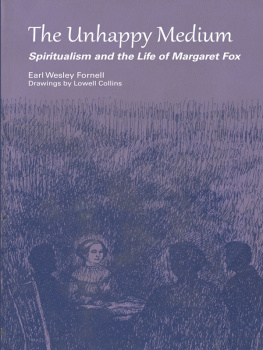
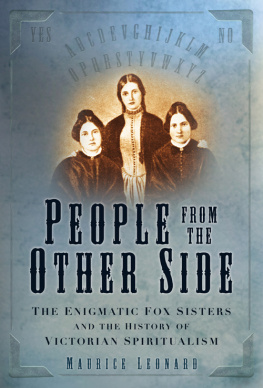

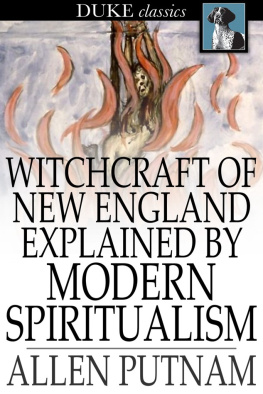
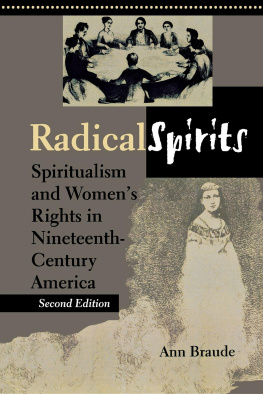
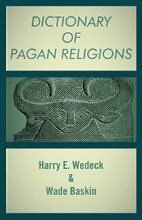

![Thomas Wyndham-Quin (4th earl of Dunraven.) - Experiences in spiritualism with mr. D.D. Home, by viscount Adare [ed.] with introductory remarks by the earl of Dunraven](/uploads/posts/book/310278/thumbs/thomas-wyndham-quin-4th-earl-of-dunraven.jpg)
